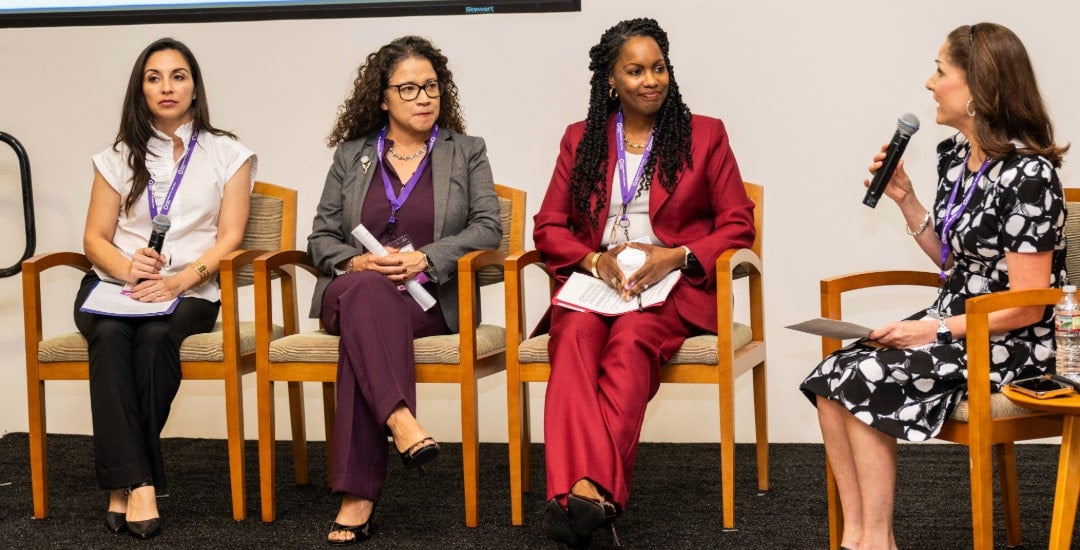The report indicated that in 2020, Harris County had a pregnancy-related death rate of 54.85 per 100,000 live births. Black, non-Hispanic women had the highest maternal mortality rate among all ethnic and racial groups at 83.4 per 100,000 live births.
Black, non-Hispanic women also had the highest infant death rate at 11.66 per 1,000 births — more than twice that of the next-highest group, Hispanic women, at 5.4.
“There are some ZIP codes that we serve where the maternal child health outcomes rival places outside of the United States,” said Dr. Charlene Flash, president and CEO of Avenue 360 Health and Wellness. “The challenges that we face are that these babies are more likely to be low birth weight. These mothers are less likely to have full prenatal care. They’re more likely to have pregnancy-induced hypertension or complications like abruption. The list goes on and on.”
Flash was one of three panelists in a recent discussion that was part of the first-ever “Innovation for Day One” conference. Additional speakers were Esperanza “Hope” Galvan, vice president of population health for the Harris Health System, and Marlen Trujillo, the CEO of the Spring Branch Community Health Center.
The panel was moderated by Luz Garcini, interim director of the Kinder Institute for Urban Research’s Center for Community and Public Health and a member of the executive planning committee for the conference. The three-day event, organized by the Rice360 Institute for Global Health Technologies, focused on identifying evidence-based solutions and technologies to advance maternal and child health.
“We don’t always have to look across the globe to find disparities,” Garcini said. “Right here in our own backyards, we are facing critical issues in maternal health and health for low-income, uninsured and underinsured people. It’s also about starting at home: If we can make our home better, we can make the world better.”
The panelists said women experiencing high-risk pregnancies
“In our space, there’s a lack of understanding of how to navigate our health care system
Trujillo said that despite having the Texas Medical Center — the largest medical center in the world — a fragmented health care system is adding to the problem. Houston has 14 federally qualified health centers, the Houston Health Department, the Harris Health System, Harris County Public Health, and faith-based charity clinics and safety net clinics funded by philanthropy.
“We don’t work together,” Trujillo said. “That’s a huge problem, but there is some positive future thinking. There is some change coming. We have to be able to coexist and be able to work together. Not as competitors, but as partners and collaborators. It has to start there.”
Galvan said data collected from patients can help strengthen collaboration between health care providers and inform care plans and interventions. As federally required by the Centers for Medicare and Medicaid Services, inpatient screening for certain social determinants of health began in 2024.
“Having data we can share serves all of our communities,” Galvan said. “Then put the science behind it. Unless we have the science support, policy isn’t going to change. It’s going to be the science that says we worked together, and it helped with patient evaluation. Now
Watch the full panel discussion below.



